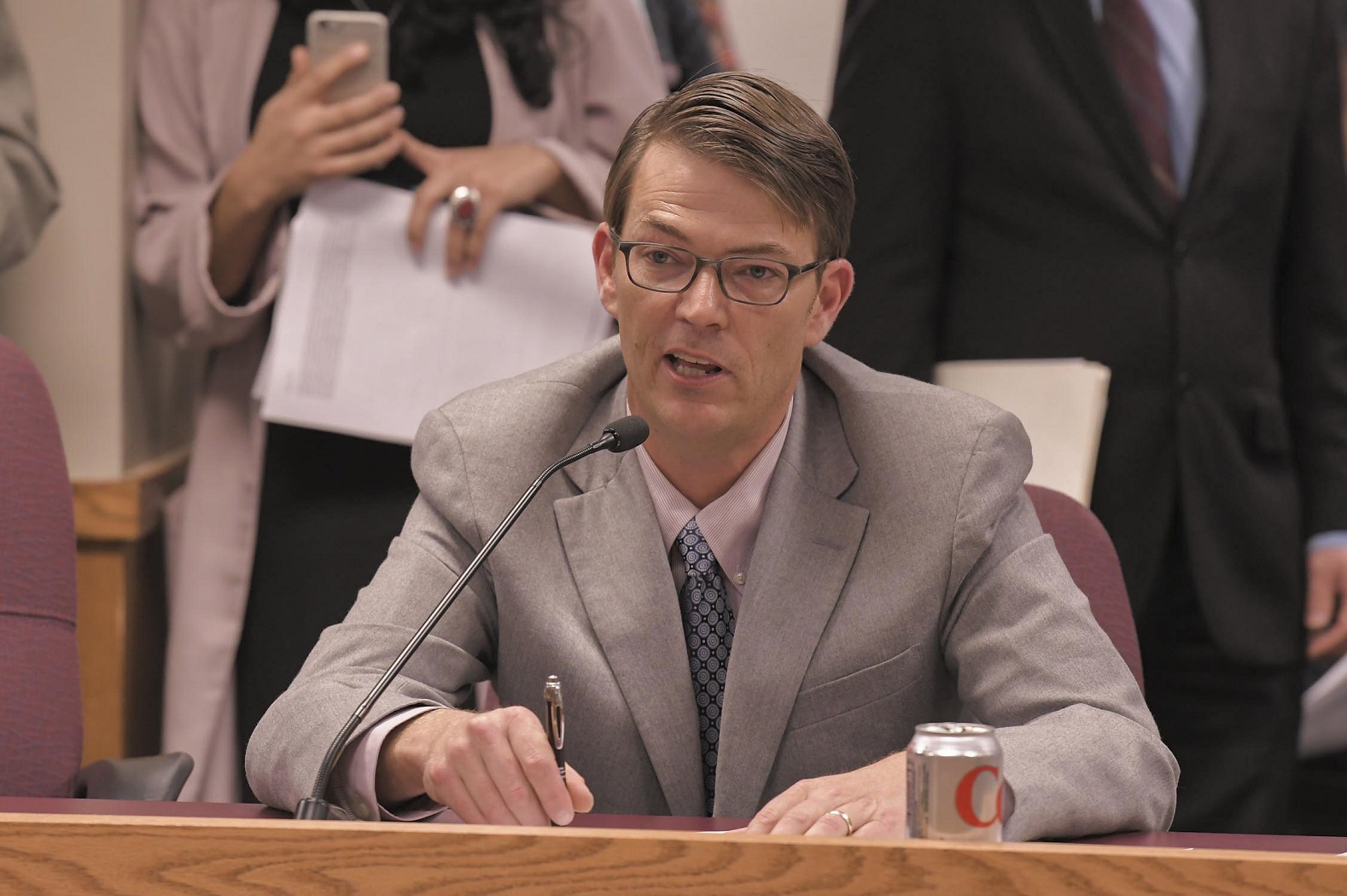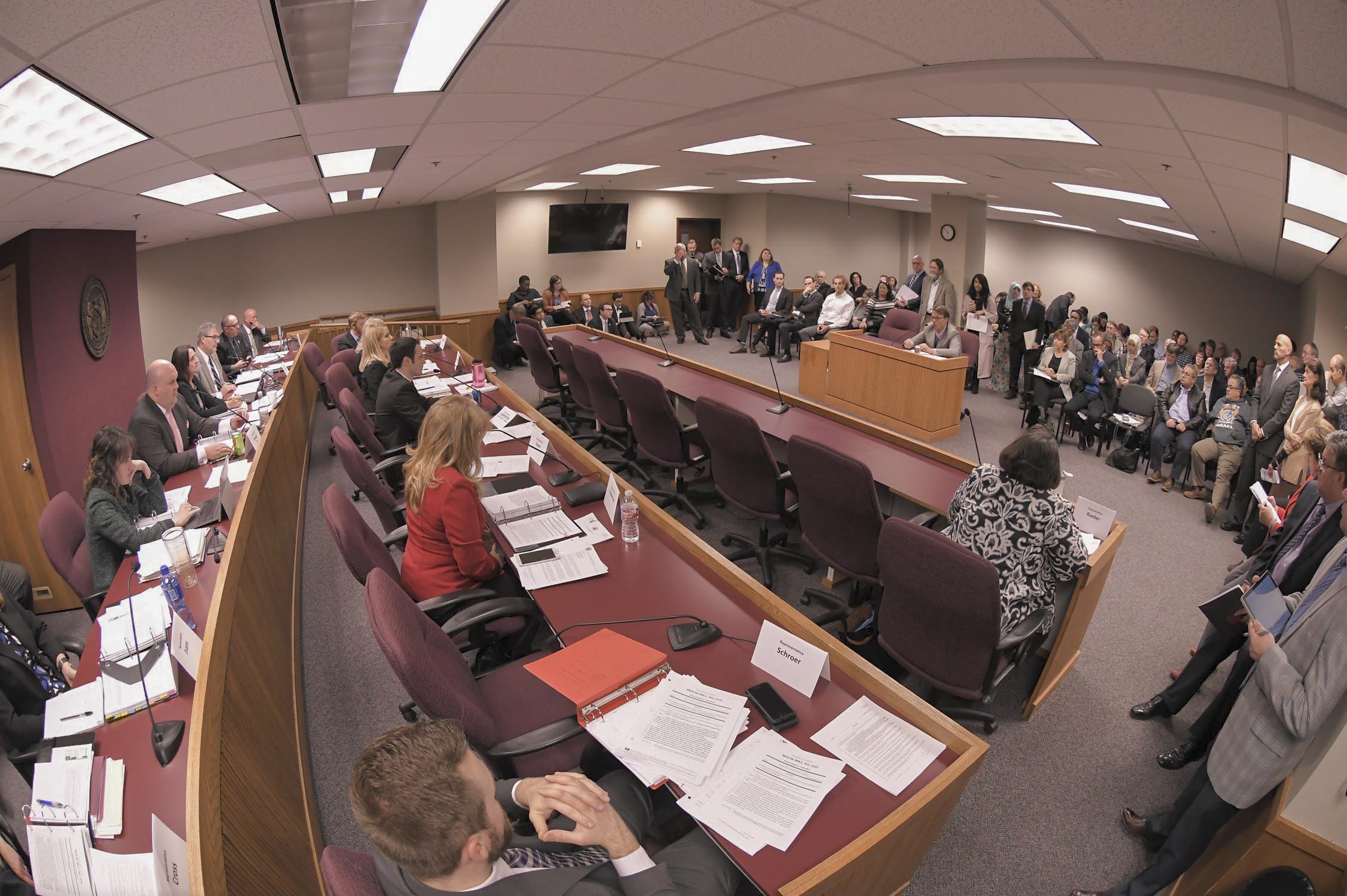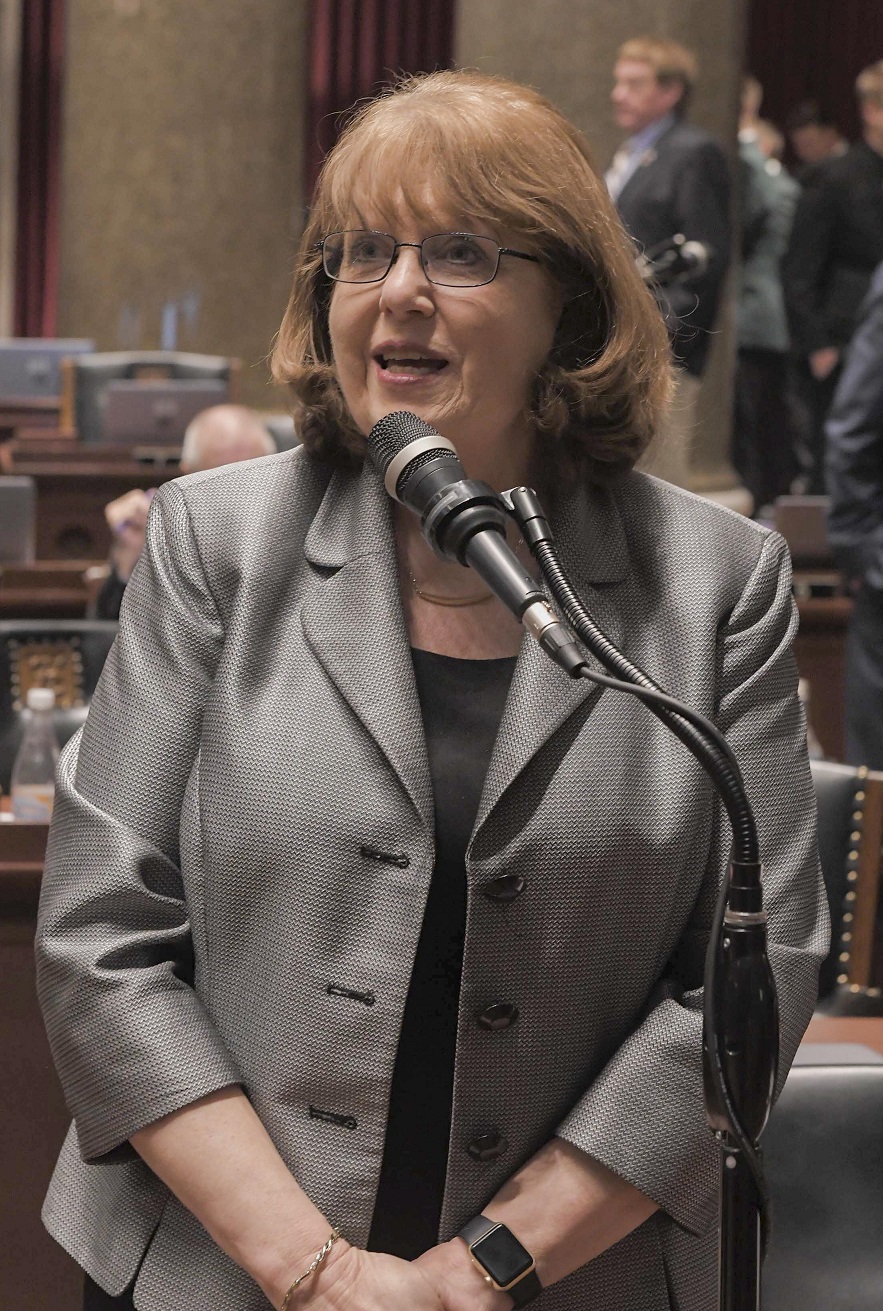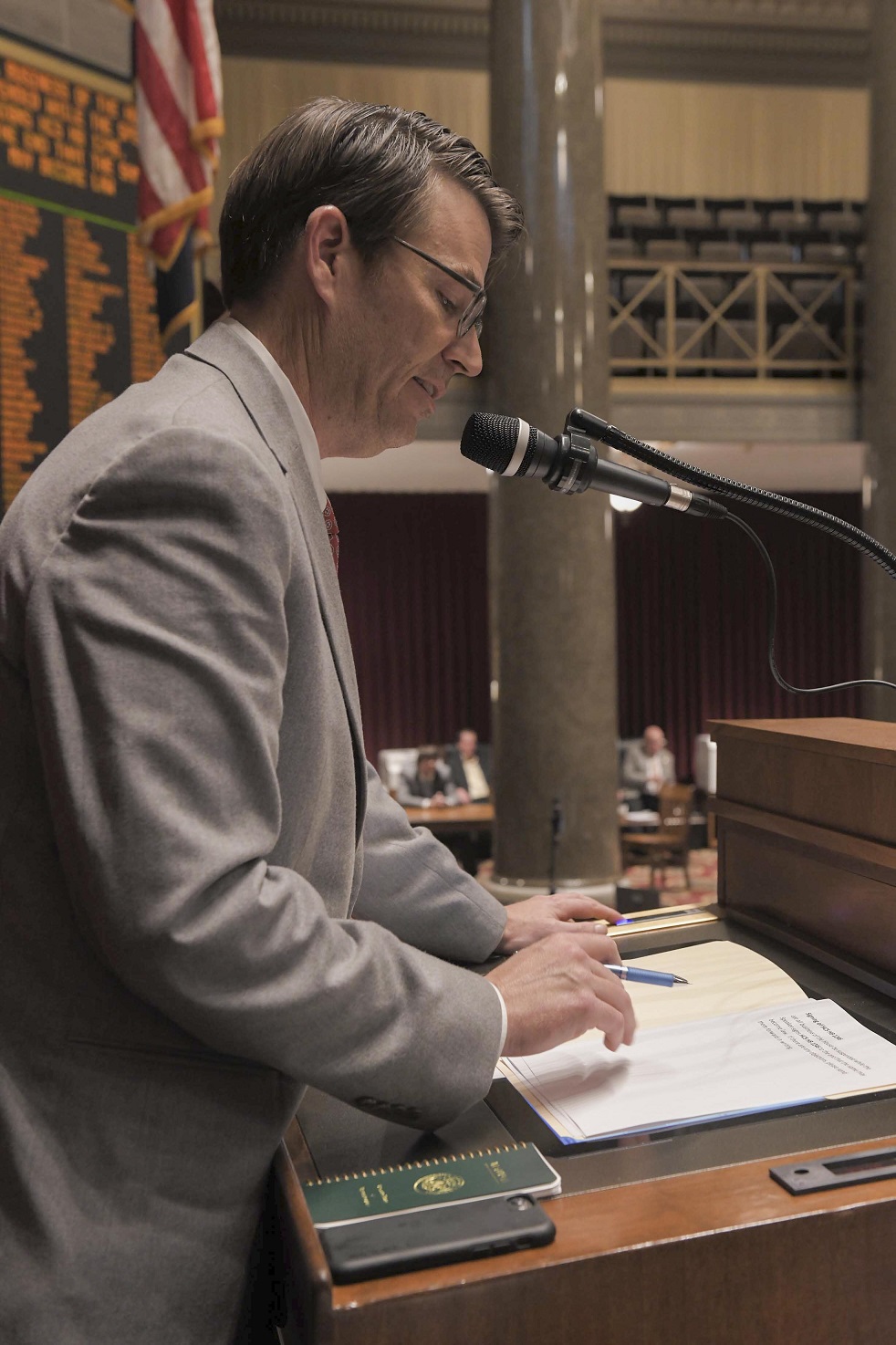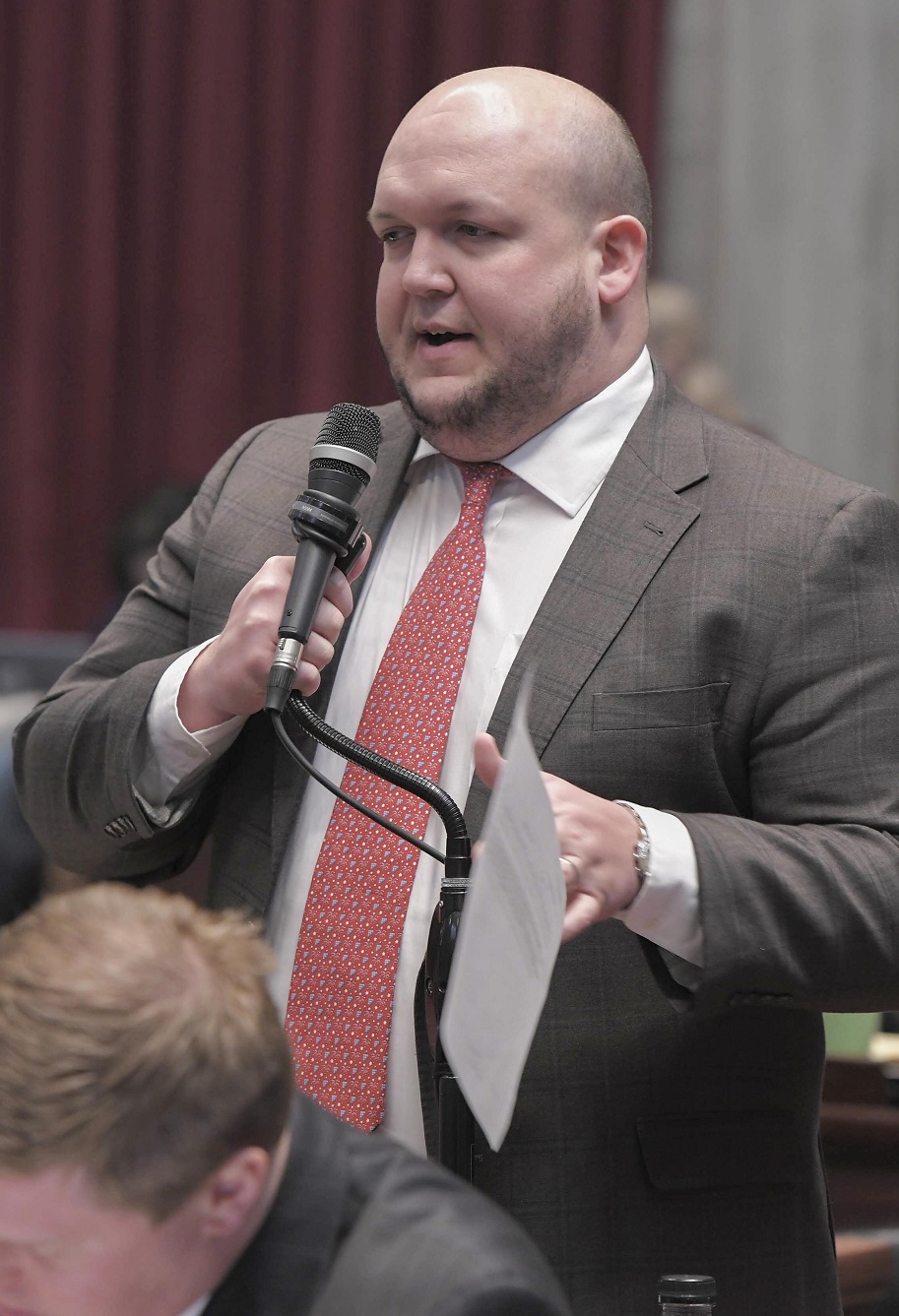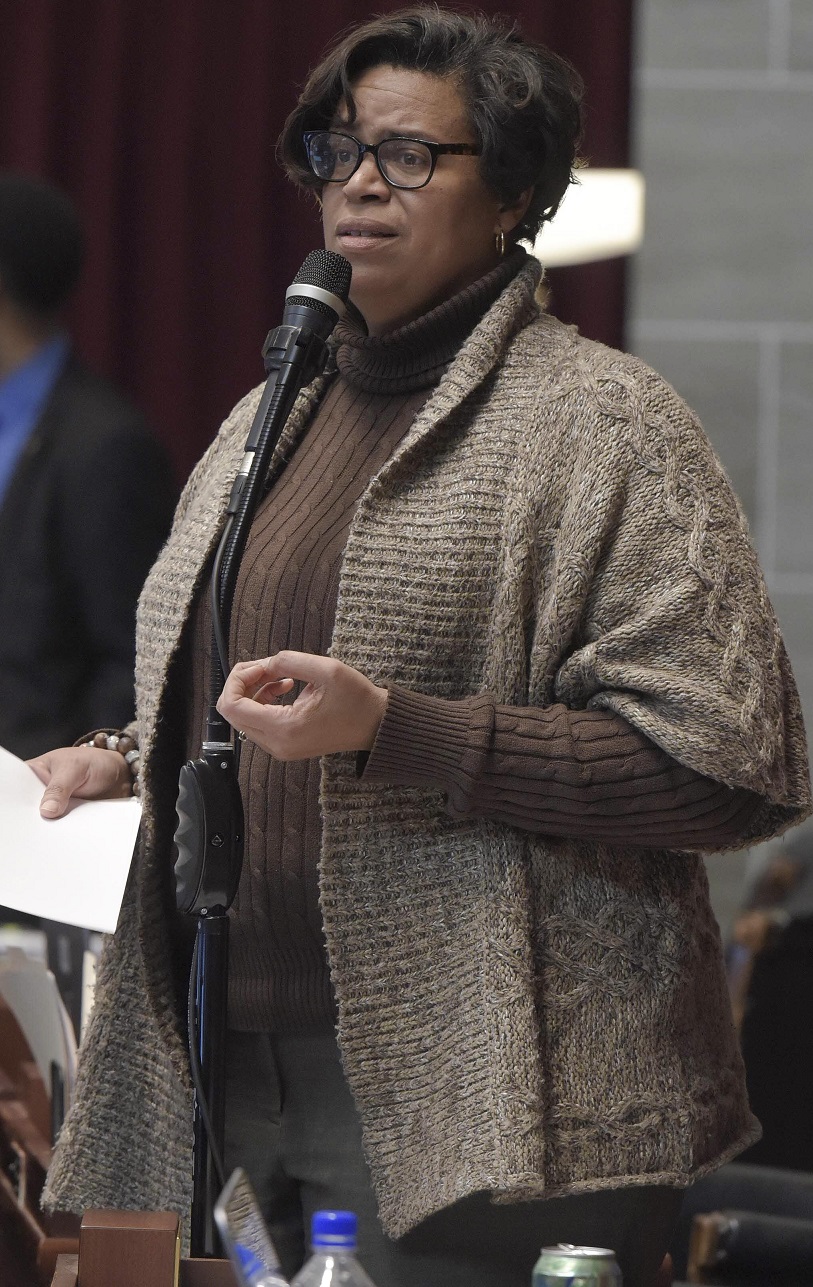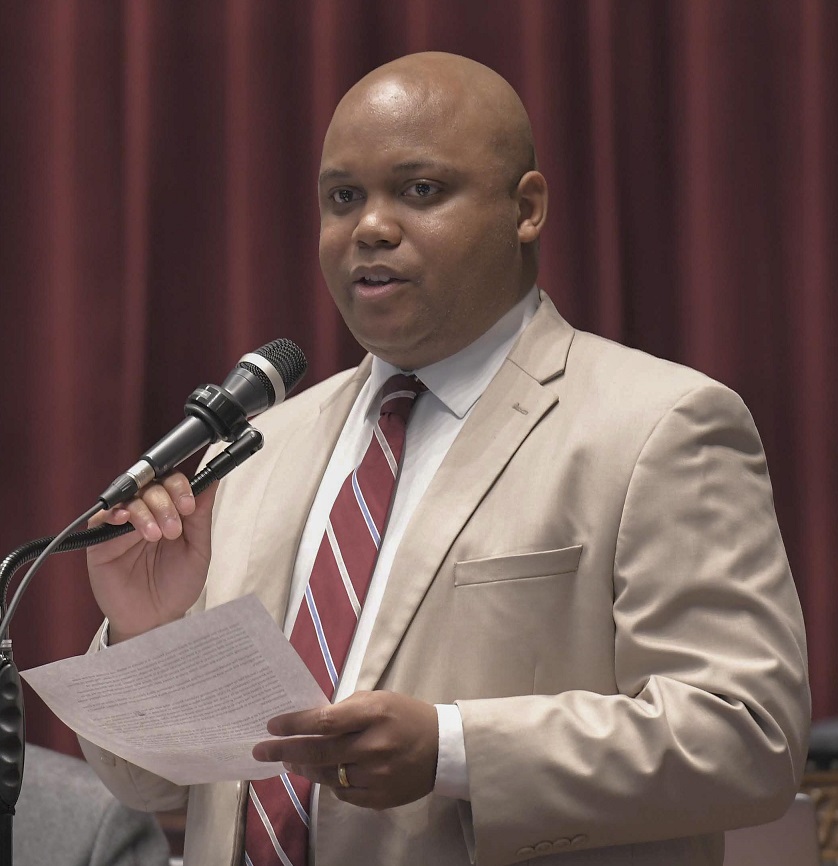A bipartisan effort to change Missouri gun laws aims to keep domestic abusers from having firearms.

House Bills 2276 and 1849 are sponsored by Representatives Donna Lichtenegger (R-Jackson) and Tracy McCreery (D-St. Louis), respectively. Both bills would expand the crime of unlawful possession of a firearm to include those who have been convicted of domestic violence misdemeanors or who have a full order of protection against them.
Representative Lichtenegger said the issue is personal for her because of her own experience with domestic violence.
“When I was four I can vividly remember my mother getting beaten nightly by my drunken father. Because of that I ended up in a children’s home because he threatened to throw acid in my face,” said Lichtenegger. “When I was 15 or 16 – don’t remember the age, really, because I don’t remember the night very well – but someone came into my room and beat the crap out of my head. There’s just no other way to put that.”
Both representatives say the bill would fill in a “loophole” in Missouri law created by the passage of Senate Bill 656 in 2016. Under the state’s original concealed carry law, Missourians who were found guilty of a domestic violence misdemeanor or who were subject to an order of protection were denied concealed carry permits. That prohibition was nullified by SB 656. Federal law denies guns to those with misdemeanor domestic violence convictions or full orders of protection against them, but since Missouri law doesn’t, only federal agents and courts can pursue such cases in Missouri.
“This has been part of federal law since 1997 but the only place that it appeared in Missouri law prior to the enactment of SB 656 was in our CCW chapter, so when we passed 656 we kind of accidentally took those protections out,” said McCreery. “This actually, truly is an issue that shouldn’t be about political party, so I hope the fact that we’ve worked together on this kind of symbolizes how this is just a good, sensible public policy.”
The bill was presented Tuesday night to the House Committee on General Laws. Several advocates for domestic violence victims told lawmakers they strongly support the legislation.
Judy Kile, Executive Director of COPE, a shelter in Lebanon, told the committee her twin sister’s husband shot and killed her in a murder-suicide. He had a history of domestic violence.
“Yesterday was our birthday but one of us isn’t here,” said Kile. “We need to get the guns out of their hands if they are known to be domestic violence offenders.”
Carla Simpson, who works for New House Shelter in Kansas City, said her sister’s husband also shot her to death in a murder-suicide.
She said if a judge had been able to order that her brother-in-law not be allowed to have guns, “I think that Mike would have thought twice about having guns in his house and my sister may still be alive today. I’m here in her memory.”
Both bills also make gun possession illegal in Missouri for those who are unlawfully in the country or have renounced his or her citizenship.
No one spoke against the proposals in Tuesday night’s hearing. The committee has not voted on either bill. Last year similar legislation received a hearing by a House committee but that panel did not vote on it.



